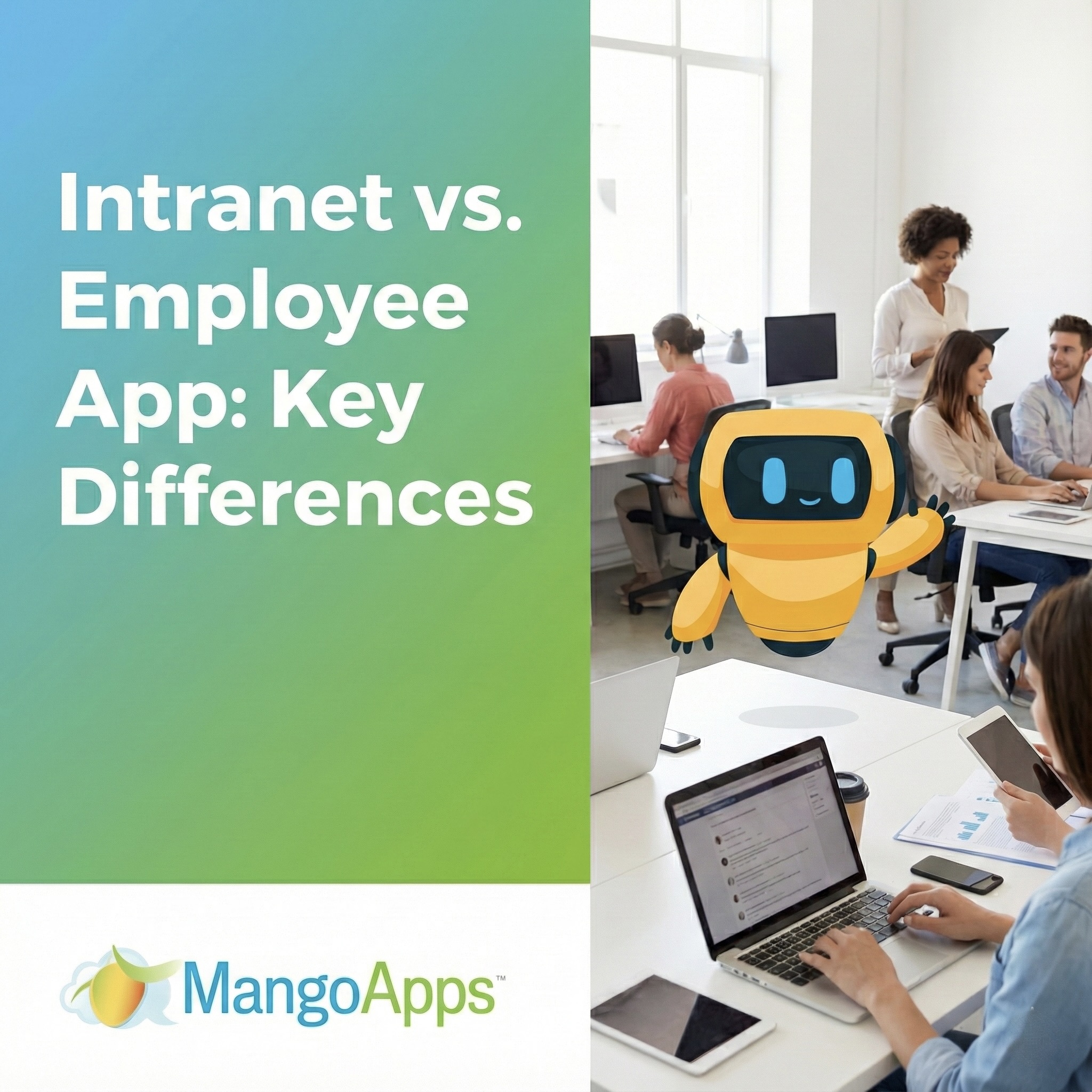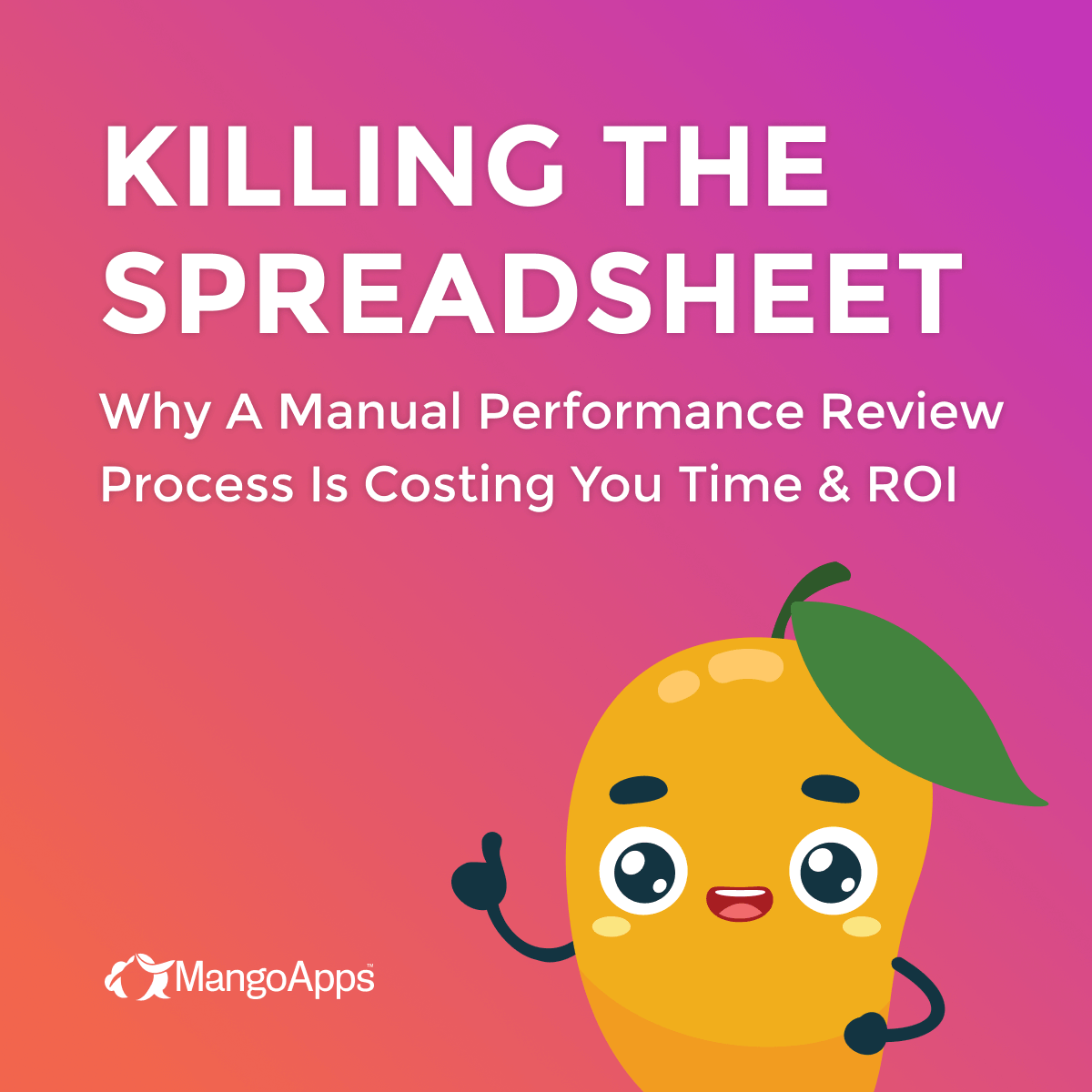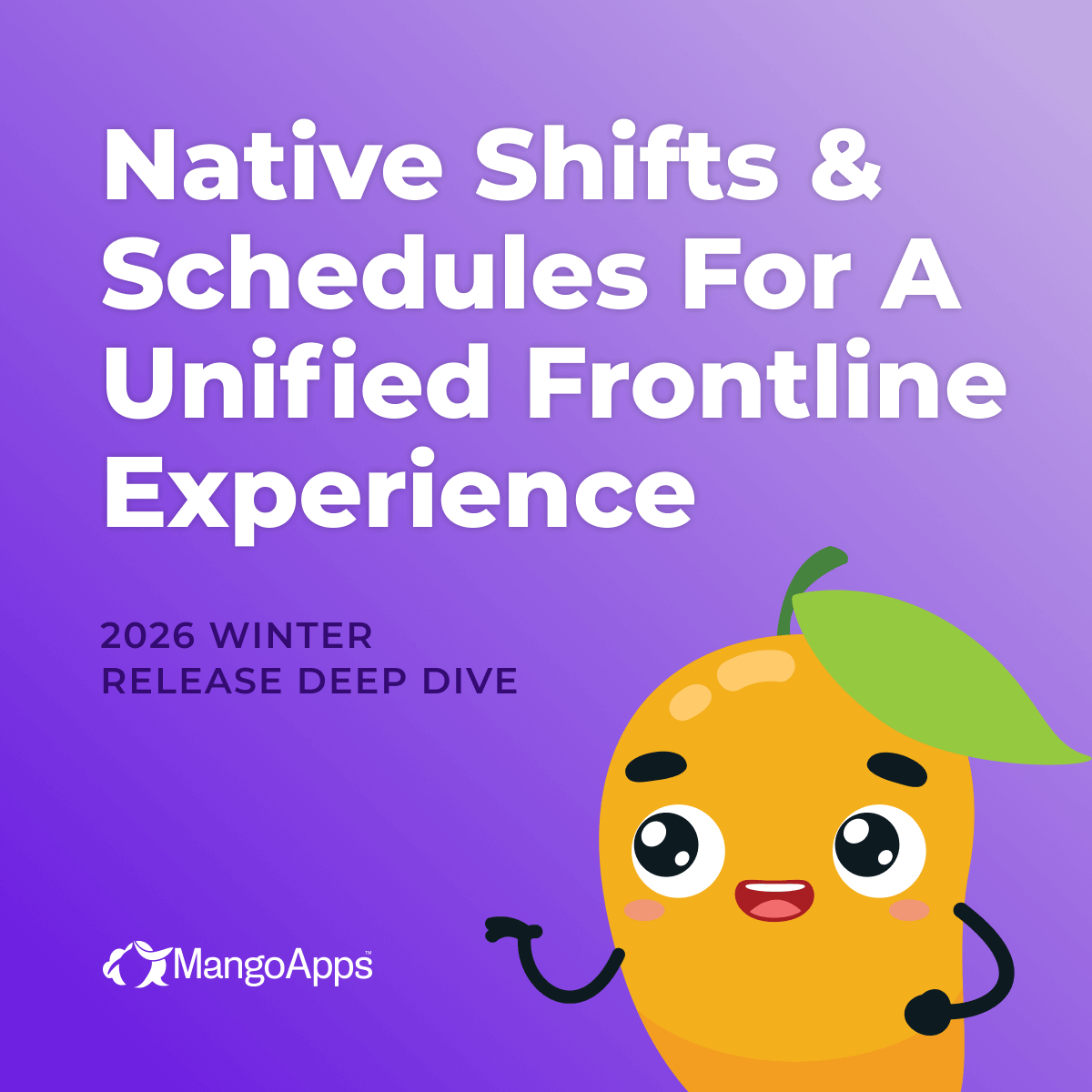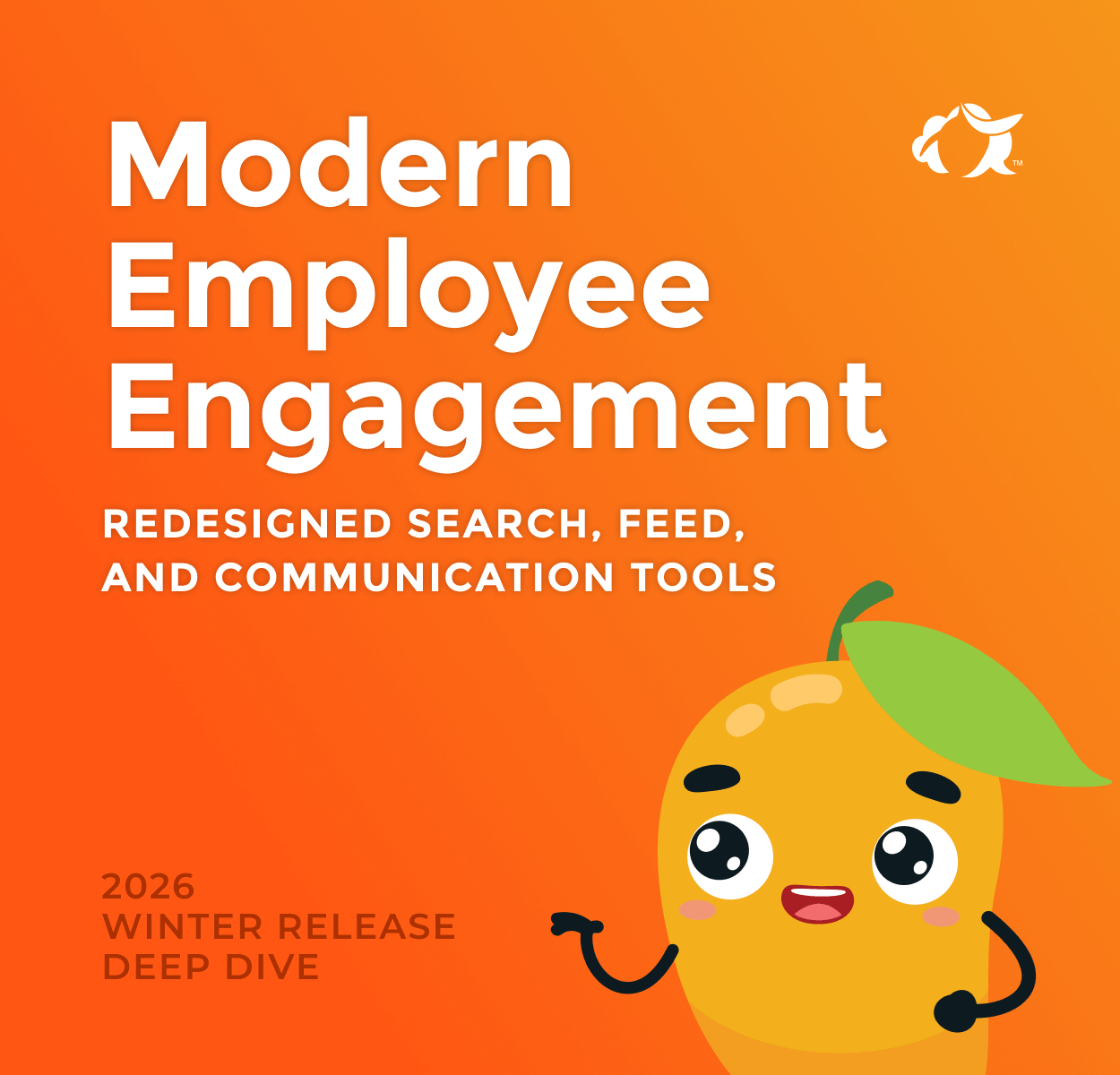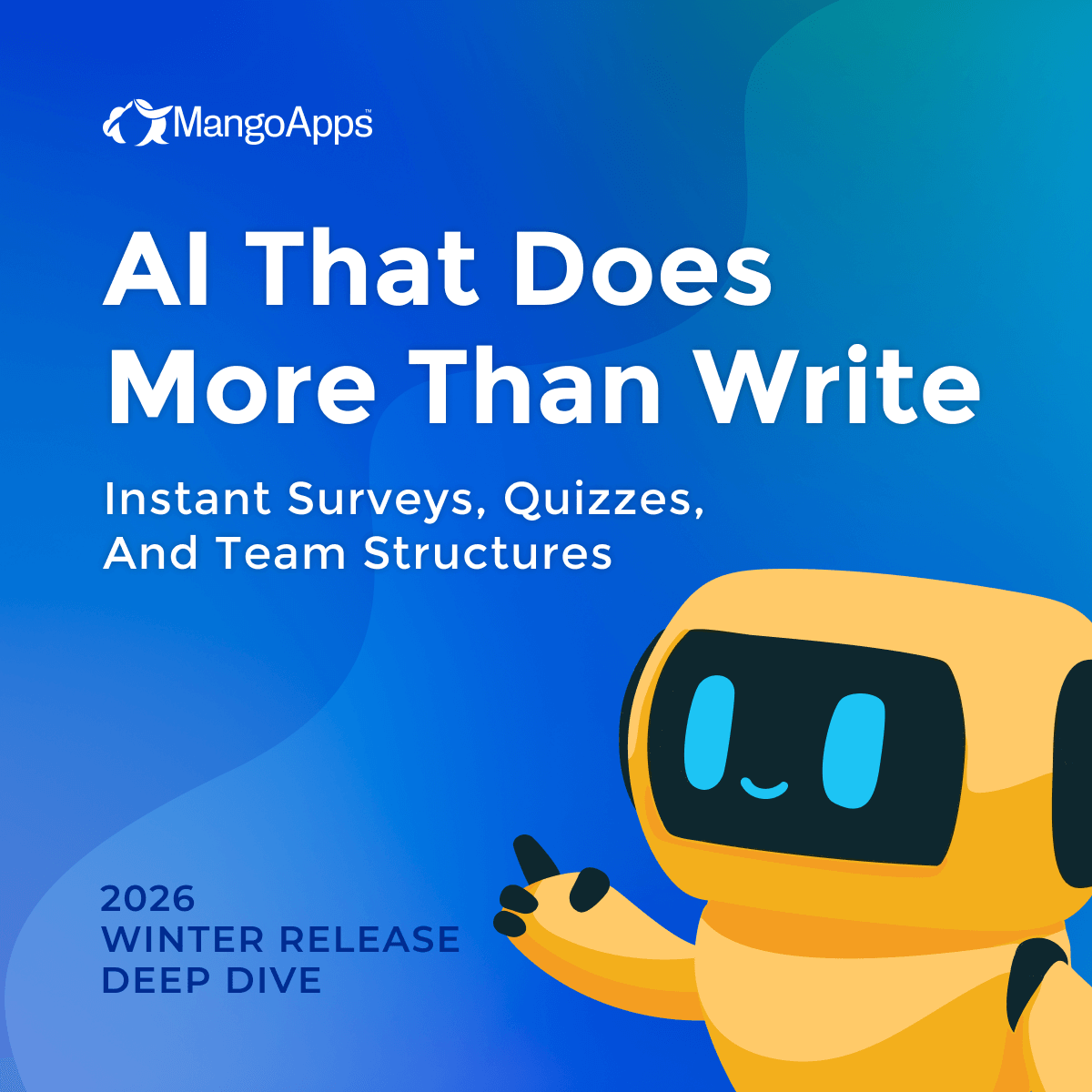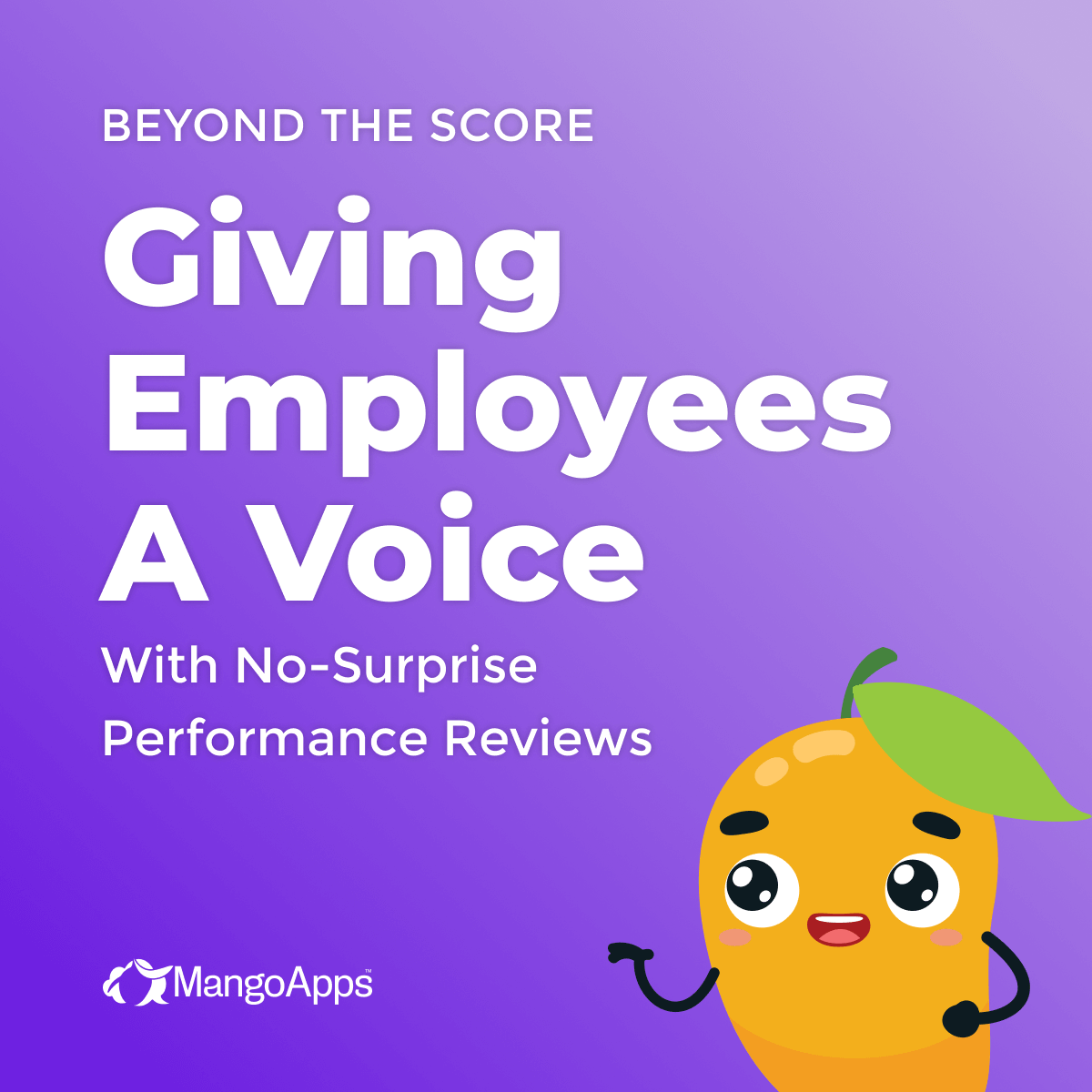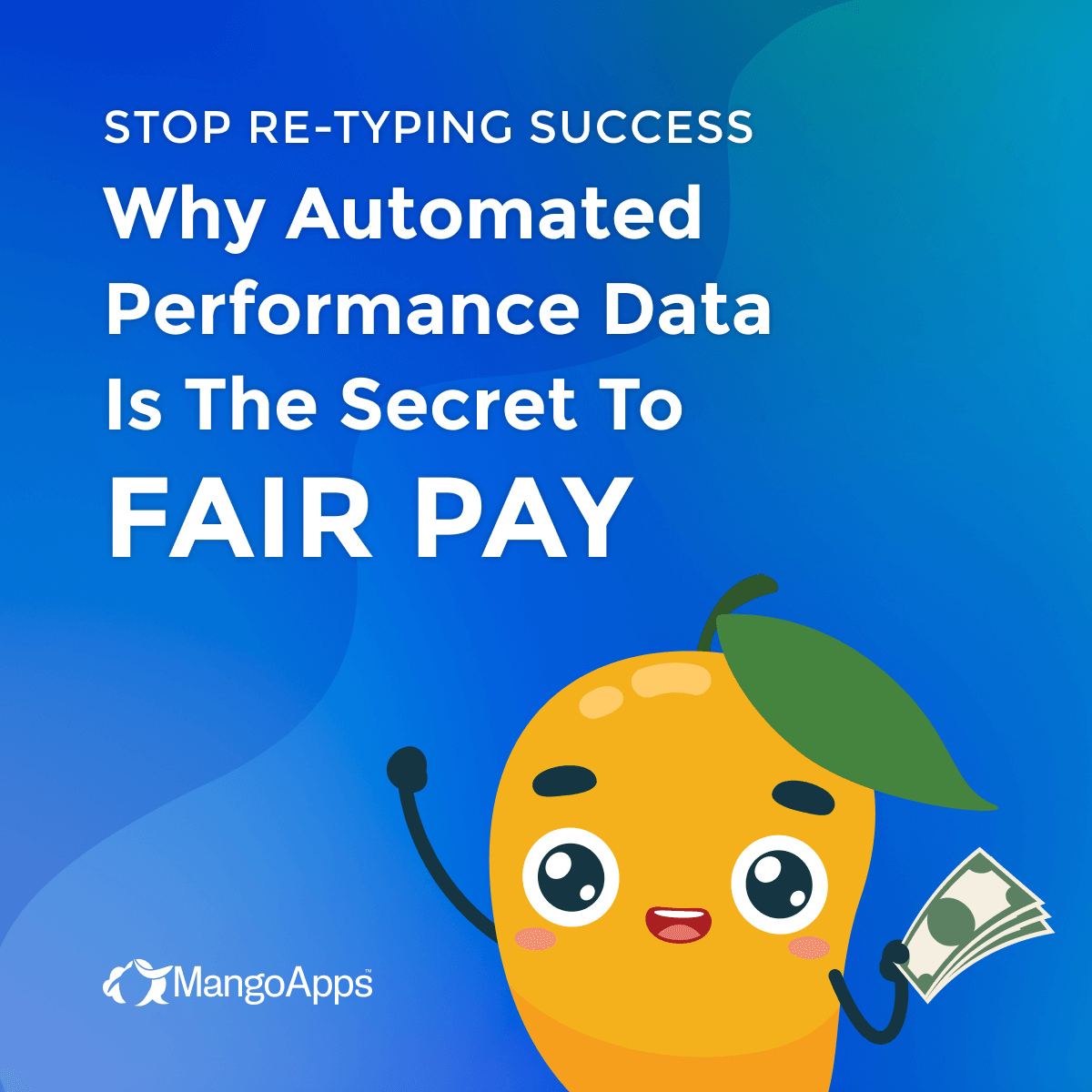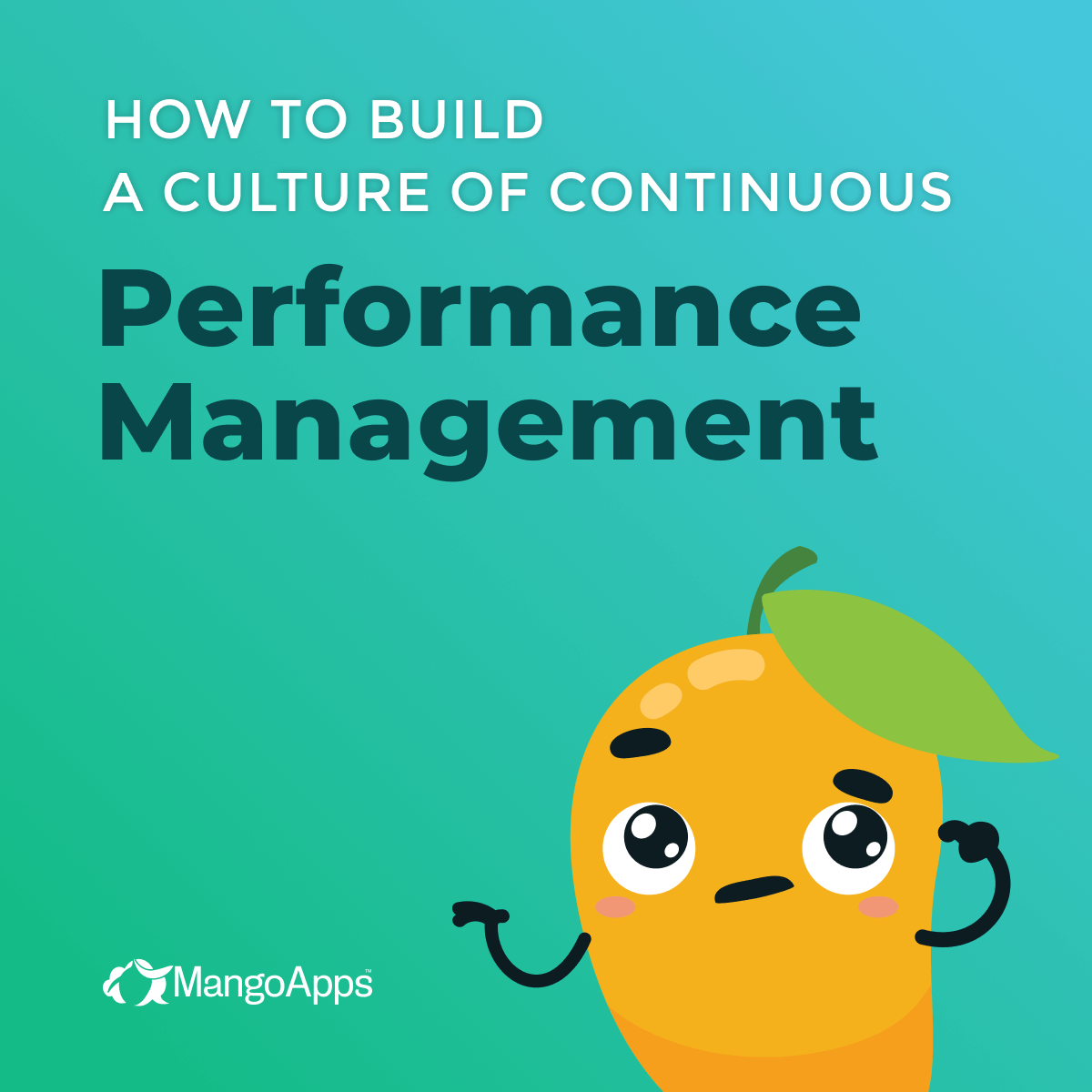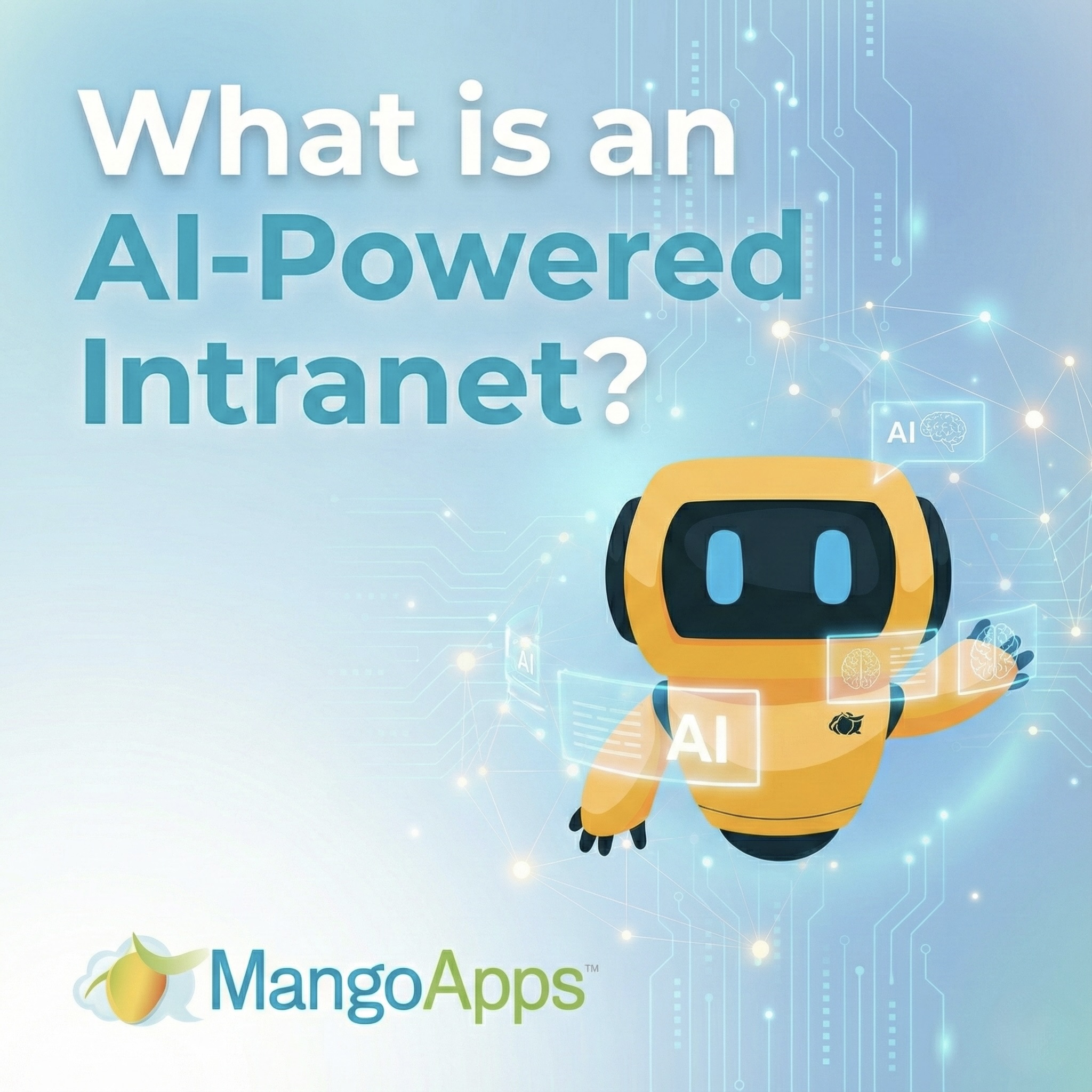
As we race towards a future dominated by automation, striking the right balance between automated efficiencies and personalized experiences is crucial for fostering a workplace environment that values employee engagement as much as it does productivity.
The integration of AI into the corporate world isn't new, but its role and capabilities have evolved dramatically. Initially focused on simple task automation, AI now drives complex decision-making processes, predictive analytics, and even employee engagement strategies. While the benefits of AI-driven automation—such as operational efficiency, scalability, and cost savings—are undeniable, it is important to implement them in a way that puts your employees and their experience at the center rather than on the sidelines.
Done well, AI self-service portals enable you to cater to your employees’ individual needs, giving each person a unique experience of technology that is tailored to their role and requirements. These tools can then augment their output and enable them to reach new heights of productivity.
In this article, we will explore how MangoApps Employee Self-Service Hubs enable you to infuse AI into your employee experience to create a layer of personalization that would otherwise be impossible and empower every employee to use modern AI tools to bolster their output.
The Critical Role of Personalization
In the realm of business, personalization is becoming an expectation. Employees, now more than ever, seek recognition of their individuality, aspiring for roles and tasks that align not just with their skills but also with their growth objectives and work-life balance aspirations. Personalized experiences in the workplace contribute to a sense of belonging and purpose, crucial elements for nurturing a motivated and loyal workforce.
Furthermore, the strategic allocation of AI capabilities based on specific job functions and requirements, as facilitated by MangoApps Employee Self-Service Hubs, exemplifies how personalization can enhance operational efficiency. This role-based access to AI tools ensures that employees have the precise technological support they need to excel in their roles, thereby maximizing performance while maintaining stringent security measures.
In an era where employees yearn for recognition and opportunities that reflect their unique talents and aspirations, the critical role of personalization in the workplace cannot be overstated. A strong strategy for incorporating AI into your employee-facing tools will enhance the employee experience through tailored support and content and empower organizations to harness the full potential of their workforce by aligning technological capabilities with individual needs.
As businesses continue to navigate the complexities of the modern work environment, the commitment to personalization will undoubtedly be a significant determinant of organizational success and employee fulfillment - read more about how self-service tools enhance employee autonomy.
The Challenge of Balancing Automation with Personalization
The main challenge lies in integrating AI into the workplace without losing the essence of human interaction. Poorly executed automation can lead to a sterile, impersonal environment, negatively impacting employee morale and engagement and eroding employees’ trust in the technology’s ability to work for them. It's crucial, therefore, to ensure that AI implementations are not just efficient but also empathetic and relevant to individual needs.
This challenge is underscored by the potential for AI-driven automation to transform workplace dynamics, making operations more efficient yet risking the creation of an environment that may feel disconnected and overly mechanized to employees. The essence of successfully integrating AI, as demonstrated through MangoApps Employee Self-Service Hubs, lies in achieving a synergy that amplifies the strengths of both AI and human capabilities, ensuring that technological implementations foster a workplace that is not only productive but also vibrant and inclusive.
Automation, particularly when augmented by AI, offers unparalleled advantages in terms of optimizing workflows, reducing manual errors, and freeing up human resources for more complex and creative tasks. However, the introduction of AI into the workplace brings with it the challenge of maintaining a workspace that values individual contributions and personal interactions—a cornerstone of employee satisfaction and engagement.
The best way to harmonize automation with personalization is through fostering collaboration between humans and AI. By leveraging AI as a tool that employees can control, customize, and interact with, organizations can create a sense of partnership between their workforce and AI systems. This collaborative approach not only amplifies the benefits of automation but also keeps the human experience at the forefront of technological innovation, ensuring that employees feel supported and empowered rather than overshadowed by AI. Read about how leveraging this technology can help HR teams devote more of their time to high-level strategy.
MangoApps AI: A Model for Balance
MangoApps Employee Self-Service Hubs were designed to maintain this delicate equilibrium. Our product enables you to go beyond just automating tasks. It helps you enhance the employee experience through a blend of efficiency and personalization.
When your employees navigate to the MangoApps Employee Self-Service Hub, they’ll be greeted by a simple portal with AI Assistants that can help them find employee resources like HR forms and policies, company knowledge management, and your library of employee training. Where they once would have had to navigate through nested folders to find the answers to questions around these topics, now they can simply query a chatbot in natural language, and be sent straight to the right place. Furthermore, role-based automation ensures that they are only directed to content and answers that make sense in the context of their job and needs.
This is made possible by RAG (Retrieval-Augmented Generation) technology, which lets you train LLMs on your company’s data and information within secure company-owned infrastructure. The AI Assistants trained on this data have a narrow focus and understand the deeper context of what your employees need, and are thus able to provide straightforward answers to even complex questions.
By giving your employees an Employee Self-Service Hub as a front door to accessing your company’s information, you save time for both your support employees and end users, and enable a richer, more connected experience in a way that is impossible without AI.
Key Features of MangoApps AI Supporting Balance
- Custom AI Training on Enterprise Data: MangoApps AI uses Retrieval Augmented Generation (RAG) to train AI models on your company’s data, ensuring outputs are directly relevant and personalized.
- Role-Based AI Utilization: The platform offers personalized AI experiences by tailoring capabilities according to employee roles and requirements, ensuring each interaction is relevant.
- Enhanced Security and Privacy: MangoApps AI prioritizes secure interactions, ensuring that personalization does not compromise privacy, thus maintaining trust and integrity in the system.
Future Directions: AI, Personalization, and the Workplace
As AI evolves, so too will its capacity for personalization. The trajectory of today’s AI technology, particularly its role in personalizing the workplace experience, points toward an increasingly intuitive and anticipatory interaction between AI systems and employees. As AI capabilities advance, the integration of predictive personalization mechanisms is poised to revolutionize how workspaces cater to the unique needs of each individual, fostering environments that are not just reactive but proactively supportive. This evolution will significantly elevate both employee engagement and operational efficiency, setting new benchmarks for what is achievable in AI-enhanced workplaces.
The future of workplace AI involves systems capable of analyzing vast amounts of data to identify patterns, preferences, and potential needs of employees, often before the employees themselves have articulated those needs. MangoApps AI Assistants, for instance, could evolve to predictively suggest resources, initiate tasks, or adjust environments based on an employee’s work habits, project timelines, or even stress levels indicated by their digital interactions. This level of personalization not only streamlines workflows but also significantly enhances the work-life balance by preemptively addressing potential challenges or bottlenecks.
Predictive personalization will play a critical role in elevating employee engagement by ensuring that every interaction with workplace systems feels individually tailored and inherently supportive. Future AI systems might, for example, suggest breaks or personal development opportunities based on an analysis of work patterns and performance data, thus promoting well-being and continuous learning. This anticipatory approach to employee support ensures that individuals feel valued and understood on a personal level, deepening their connection to the organization.
As AI becomes more adept at personalization, its integration across various digital platforms and tools used within the workplace will become more seamless. AI Assistants will be able to carry context and personalization settings across applications, ensuring a consistent and tailored digital experience regardless of the platform. This seamless integration will significantly reduce the cognitive load on employees, allowing them to focus on creative and strategic tasks by minimizing the friction associated with switching contexts or tools.
Looking ahead, the goal of predictive personalization in the workplace extends beyond efficiency and engagement; it’s about empowering a richer collaboration between humans and AI. This symbiotic relationship will enable employees to leverage AI insights to make more informed decisions, explore new creative avenues, and innovate at an accelerated pace. The role of AI will shift from assistant to collaborator, with systems offering insights and suggestions that complement human intuition and expertise.
Conclusion
In the rapidly evolving landscape of workplace technology, finding the right balance between automation and personalization is more crucial than ever. MangoApps Employee Self-Service Hubs show how technology can augment the human element rather than replace it. By prioritizing both efficiency and personalized experiences, businesses can ensure they remain places where employees feel valued and engaged, paving the way for a future where technology and humanity coexist in harmony.
Read more about how these tools benefit each stage of the employee journey, or a more detailed look at the use case of AI Assistants for self-service tools.

